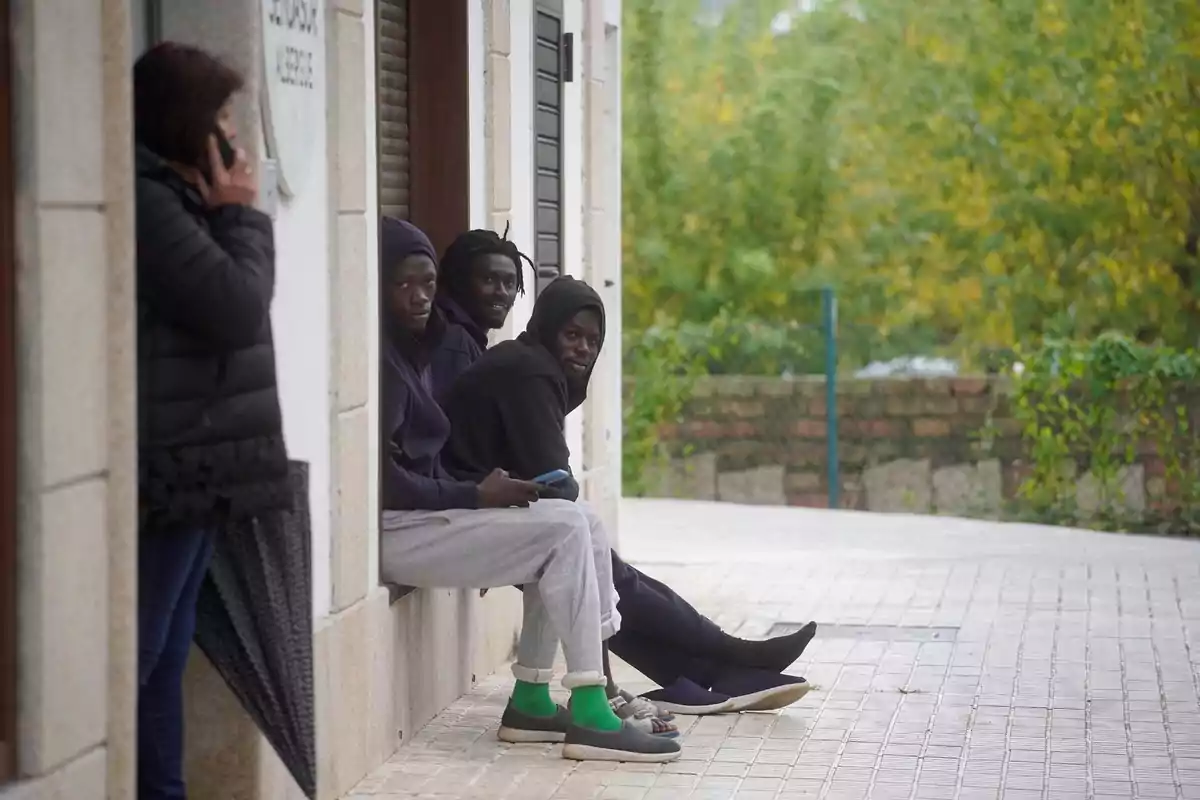
The new law will allow immigrants with criminal records in Spain to be regularized.
It won't be mandatory to have a Catalan course to obtain citizenship
This Tuesday, the new immigration regulation in Spain has come into effect which eases the conditions for obtaining papers. It is a reverse path from the current trend in the EU. While countries are closing borders and tightening conditions to curb the migration collapse, Spain is doing just the opposite.
The implementation of this new regulation makes it much easier for immigrants to regularize their situation from now on. The years of registration required to receive papers are reduced from three to two. Family reunification will also be easier.

Under the new law, which will benefit 50,000 immigrants in Catalonia, a 30-hour contract will no longer be mandatory but a 20-hour one. To bring a family member, it will no longer be necessary to be married, and the maximum age to bring children increases to 26 years (26 años).
Among the new conditions, there is one particularly controversial, which is that from now on, those with criminal records will also be able to regularize their situation. Additionally, it will no longer be necessary to take any Catalan course to obtain the papers.
Controversial measures
Although until now the criminal record prevented access to regularization, it will no longer be a computable factor. This is very controversial because the majority of repeat offenders in Catalonia are foreigners. This has increased the demand to deport foreign criminals.
Not only have deportations not been accelerated, but now criminals will be able to regularize their situation to stay permanently in Catalonia. This reopens the debate on the link between mass immigration and security, and the management of public safety.
Immigration poses numerous challenges for Catalonia, which is by far the community that absorbs the most immigration in the Spanish State. The new regulation also poses a challenge for the transfer of immigration powers agreed by Junts. The transfer was justified by a stricter control of immigration in Catalan territory.
The non-requirement of Catalan also causes controversy in Catalonia, where demographic replacement poses a major challenge for a minority language. The Govern has recently approved the National Pact for the Language with measures to promote and favor Catalan. At the same time, the central Government eliminates the obligation of Catalan to access citizenship.
Call effect?
The new immigration regulation has been criticized by sectors warning of a call effect. At a time when neighboring countries are closing borders, the relaxation of conditions in Spain will make many immigrants choose our country as a destination.
The Government of President Pedro Sánchez also plans to accelerate the extraordinary regularization of 500,000 illegal immigrants in Spain. It is one of the demands of ERC and Podemos. The legislative initiative has been blocked for some time precisely due to the lack of enthusiasm from the PSOE, which now sees it appropriate to implement it.
More posts: